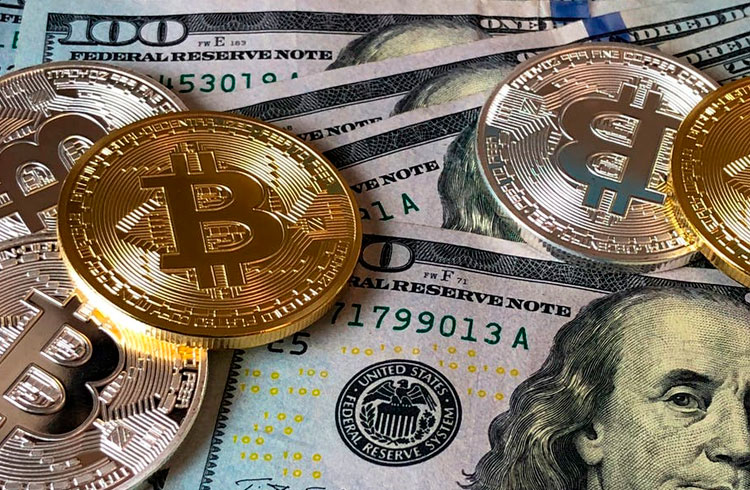This Q&A is the full interview with Dr. John McAlane. For our deep dive into cryptocurrency trading addiction, with input from the full group of experts, see this article. Below is an interview with Dr. John McAlaney – Certified Psychologist and Scientist and Professor of Psychology at Bournemouth University. This is the full transcript of our interview, quotes from which were published in our main article on the topic here. For a deep dive into the topic of cryptocurrency trading addiction and its links to gambling, follow this link. As for the full interview of Dr. John McAlane, see below.
CoinJournal (CJ): Do you think there are similarities between cryptocurrency trading addiction and gambling addiction? If so, could you name the most notable ones? Both cryptocurrency and gambling share a degree of risk. This is something that people can find exciting and can draw them into the behavior. Furthermore, both gambling and cryptocurrency can involve a degree of skill and, in turn, can result in profit. For example, a skilled professional poker player can earn enough money from poker that it becomes the main source of his income. Likewise, someone who has experience in cryptocurrencies can make a living trading – but in both cases it is only a minority of people who are successful.
CJ: In your opinion, what makes activities like trading so addictive? As humans, we evolved to be motivated by rewards. This is one of the ways we learn to function in society. It’s also one of the reasons behavioral addictions exist – we do something and are rewarded for it in some way, which motivates us to do it again. We are also driven to be curious and to take some risks. This helps us to explore the social world. Trading combines these two processes.
CJ: What are your thoughts on influencers who, in exchange for a fee from the founders, promote shady cryptocurrencies to their followers with little knowledge of how it works – do you think this is problematic? We are all social creatures, although we often underestimate how much we are influenced by those around us. This is especially true in many cultures, where we pride ourselves on being individuals. We also tend to assume that others know more than we do if those others act in a confident and informed manner. This means that people can pay attention to influencers based on how that influencer presents themselves; rather than basing your judgment on how much this influencer objectively knows about trading.
CJ: In your opinion, would the daily volatility of cryptocurrency prices affect mental health as people see their investments go up and down so widely each day? While a certain degree of risk can be pleasant, we also like to have some consistency in our lives – in others, we can handle a degree of unpredictability, but only to a predictable level. Continuing to go through periods of volatility and uncertainty can cause feelings of anxiety in individuals, which can impact their mental health.
CJ: Research on cryptocurrency trading addiction is still limited, do you think the need for this is likely to increase in the future? This is very likely. Cryptocurrency trading is a new behavior, and new behaviors always catch the attention of researchers. This is especially the case if there is any suggestion that the behavior in question could harm the individual or others.
CJ: Do you believe that the cryptocurrency industry should be doing more to promote safe investments and address the problem of addiction? In other industries, such as the gambling industry or the alcohol industry, companies are expected to engage in what is called corporate social responsibility, in which they promote the safe use of their products, although there are often debates about if these industries are doing what they could do. This is sometimes reinforced by legislation. The cryptocurrency industry potentially has an advantage in this as, in theory, it is easier to track online behavior than it is to track offline behavior such as alcohol use. This means there is the potential to more quickly identify people who are experiencing issues and also to provide personalized support. However, this requires a coordinated effort from the industry. If an addicted individual believes that a crypto company is restricting his actions, he may go to another company.
CJ: Conventional gaming is restricted in many territories to consumers over the age of 18. Do you believe that there should be a similar rule within cryptocurrency in order to protect younger and more impressionable minds from possible addiction? Yes, I believe trading should be limited to over 18s. However, we have to recognize that this is extremely difficult to regulate. I would also say that the type of person who is interested in cryptocurrencies is often the type of person who understands and knows how to circumvent computer systems.
CJ: If I can press you for a yes or no answer, do you believe the world would be a happier place without gaming? I don’t believe. Most people who gamble do so in a safe, responsible and enjoyable way. Those who develop gambling addictions are often facing issues in their lives that lie behind their addictions. If it wasn’t for the game, they would probably be addicted to something else.
CJ: Similar to the question above, would the world be a better place without investing in cryptocurrencies? I doubt it. Cryptocurrency emerged from individuals looking to find new ways to deliver financial transactions. This curiosity about how systems work and how they can be changed is a fundamental aspect of being human. The world would be very boring if people always accepted the status quo.
CJ: What advice can you give to people interested in trading cryptocurrencies, who may be predisposed to gambling-related addictions? Anyone who is aware that they may have a gambling problem probably already knows that they should avoid activities such as cryptocurrency trading. If they decide to get involved, they should be mindful of their own behaviors and thoughts and be on the lookout for warning signs such as chasing losses, lying about their behavior to others, or feeling guilt or remorse for their actions.

